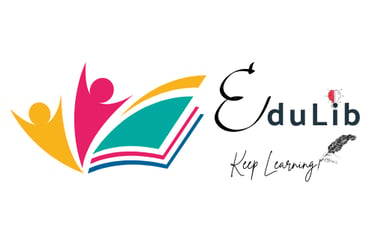
The Function of Assessment in Learning and Development
Explore the vital role of assessment in learning and development in this blog. Discover how effective evaluation enhances student progress and fosters continuous improvement in education.
There are different types of assessments that learners have to undertake over the course of their programme. These include initial assessments, formative assessments, and summative assessments. An initial assessment is carried out to check the suitability of the learner for his or her chosen course. It is usually done at the beginning of the programme. For example, in my previous roles as the HE civil engineering programme coordinator, I carried out interviews for prospective HNC civil engineering students/apprentices. Once they have completed their application forms on the institution's website, these are then passed to me. I carried out phone interviews to check if they are young/mature learners and if they have the required qualifications and/or work experience. I did this to establish who would be participating in the initial assessment. The initial assessment was designed for students who did not meet the entry requirements set for the programme. For the young/mature HNC learner who has work experience but not the required minimum Pass grade in GCSE, A-levels, or level 3 qualification, I set an initial assessment for them. It included functional English and Math questions designed to check if they could complete the technical, research, and calculation-based units of the HNC programme. The students are accepted onto the course once they have achieved the required minimum 40% mark. The in-class performance of students who did not achieve this grade would be closely observed for the first six weeks. They would also be supported by the English and Math support departments during this process. If their performance did not improve during this time, they would be withdrawn from the course and advised to apply to another department within the institution.
Formative assessments are informal assessment methods used to check the understanding of the teaching session or the academic progress of the students. This is an ongoing process. These could be in the form of quizzes, in-class targeted, closed, or open questions, group discussions, self-assessments, role plays, etc. For example, in my level 3 health and safety unit, I used Kahoot to check their understanding of my previous lesson. I then use the performance data from the exercise to review topics they performed poorly in. Also, during the session on the production of a construction phase plan (CPP), I provided a CPP template for the students in the Collaboration Space section of the Microsoft Class Notebook. Then, each student completed their respective section of the CPP document. This allowed all the students to have a holistic view of the document and comment on how to improve the collective activity.
Summative assessments are formal assessment methods used to obtain the final grades of students for a unit or to confirm achievement. Sometimes, it can be done at the end of the unit. These could be in the form of an exam, a test, an essay, a presentation, an observation, a project, etc. In my current role as a civil engineering lecturer, I set summative assessments based on the learning outcomes in the Pearson specification. For example, in my HND unit 35, alternative methods of construction, the specification has four learning outcomes. I have divided the summative assessments into one essay and one presentation, with each containing two learning outcomes.
Reference/Bibliography
Barton, J. (2015) Writing your assignments – tips and wrinkles. Available at: https://www.britishschoolofcoaching.com/writing-your-assignments-tips-and-wrinkles/ (Accessed: 03 November 2021)
Davies, A. and Stiling, L. (2021) TAQA – training assessment and quality assurance [PowerPoint presentation]. 22 October.
Estyn (2021) About us. Available at: https://www.estyn.gov.wales/about-us/what-we-inspect (Accessed: 06 November 2021).
Gravells, A. (2014) Achieving your assessment & quality assurance units (TAQA). 2nd edn. London: Learning Matters SAGE.
Kime, S. (2017) Four pillars of assessment validity. Available at: https://evidencebased.education/pillars-assessment-purpose-validity/ (Accessed: 03 November 2021)
Pearson (2021) Our company. Available at: https://plc.pearson.com/company (Accessed: 06 November 2021)
Qualification Wales (2021) About us. Available at:https://www.qualificationswales.org/english/about-us/ (Accessed: 06 November 2021)


